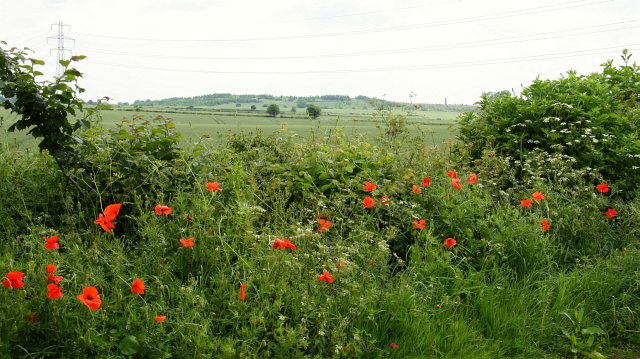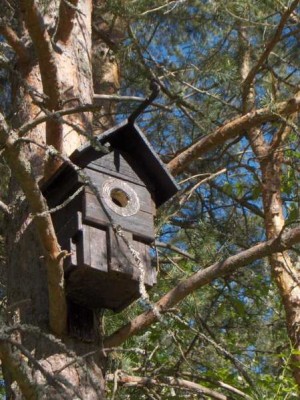Is Guerrilla Gardening a Form of Vandalism or Conservation?
Guerrilla gardening is defined as gardening done without permission on land which is not your own. Although technically illegal, few people have ever been prosecuted.
 Image: Alan Walker [CC-BY-SA-2.0 (http://creativecommons.org/licenses/by-sa/2.0)], via Wikimedia Commons
Image: Alan Walker [CC-BY-SA-2.0 (http://creativecommons.org/licenses/by-sa/2.0)], via Wikimedia Commons By Flora Haynes,
BSc Ecology and Conservation, @FloraHaynes
Guerrilla gardening is defined as gardening done without permission on land which is not your own. Although technically illegal, few people have ever been prosecuted. There are issues of ‘injury’ to property, trespassing and inevitable health and safety issues (such as gardening at night). However, as most people will agree, guerrilla gardening benefits nature and the community. The activity generally occurs on derelict or neglected land such as roundabouts and motorway verges. These areas normally have few species present and are of little benefit to wildlife. But guerrilla gardeners aim to change that by planting additional species, sometimes in the form of seed bombs (balls of seeds, compost and water). The addition of species obviously leads to an increased diversity, as well as being a food source for birds and insects and contributing to soil fertility. The aesthetic value of the gardener’s neighbourhood can also be greatly improved; some claim to the point where property value is increased.
The legality of guerrilla gardening is a bit of a grey area. Councils in the UK don’t seem to mind the activity, but cannot condone it due to health and safety concerns and responsibilities. In fact it could be argued guerrilla gardeners are saving councils money in terms of gardening contractors. Globally attitudes vary; in Munich the activity has been legalised and permits issued to responsible gardeners, while in America a guerrilla gardener in her eighties was threatened with court action.
The concept is not a new one. The first British group, the diggers, is thought to have formed after the English civil war when people fought for the right to grow food on common land, and groups formed in the seventies are still in existence today. This is not just a Western phenomenon, similar activities can be found globally. There is even an International Sunflower Guerrilla Gardening Day (May 1st if anyone fancies giving it a go). As populations grow and urban areas spread, guerrilla gardens could provide important corridors for the survival of wildlife in our cities, and become an important conservation tool.
Find out more about guerrilla gardening here
The diggers
Making seed bombs





One Comment
Can I get in trouble planting wild flowers and clearing paths for assess to a unused neglected land. I want it to be open to public.